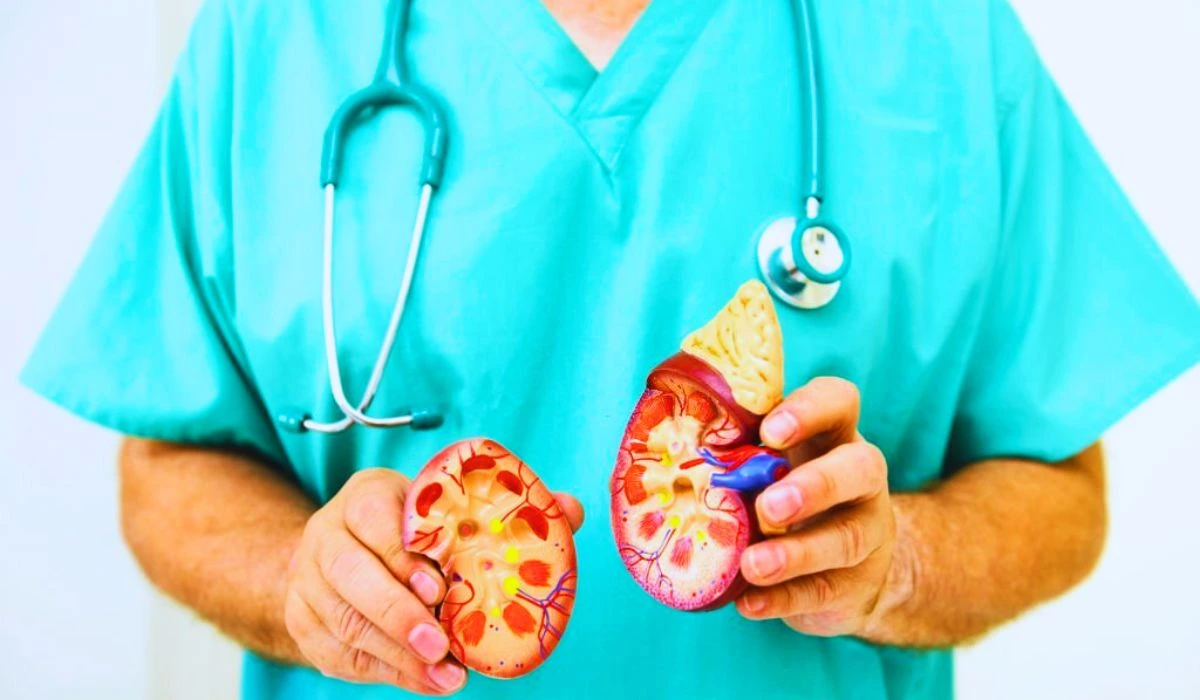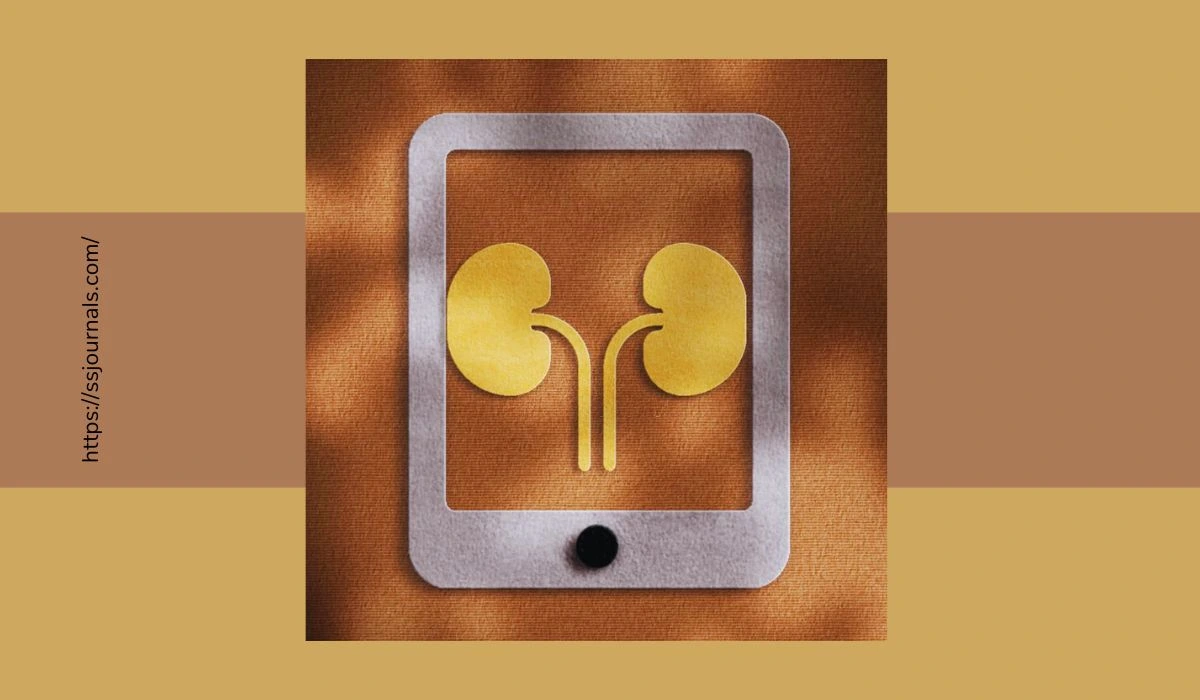Kidney failure, also known as renal failure, is a serious medical condition where the kidneys can no longer filter waste products and excess fluids from the blood. This results in dangerous levels of waste accumulation along with fluid and electrolyte imbalances in the body.
Kidney failure is classified into acute kidney failure, which develops rapidly over days or weeks, and chronic kidney failure, which is a gradual loss of kidney function over months or years.
Recognizing the signs and symptoms of kidney failure early and seeking prompt treatment can help prevent permanent damage and kidney failure. This article provides an overview of kidney failure, its common signs and symptoms, and the available treatment options.
Kidney Failure: An Overview
The kidneys are a pair of bean-shaped organs located on either side of the spine behind the abdomen. They have several crucial functions – filtering blood to remove excess fluids, salts, and waste products which are then expelled from the body through urine.
Kidneys also maintain a stable balance of electrolytes and produce hormones that regulate blood pressure, red blood cell production, and calcium absorption.

Kidney failure occurs when the kidneys are damaged to the extent that they cannot effectively perform these vital functions. Wastes and fluids start accumulating in the body, leading to potentially life-threatening complications.
Acute kidney failure develops rapidly, usually as a result of sudden injury or illness affecting kidney function. Chronic kidney failure progresses gradually over the years and is often caused by underlying conditions like diabetes or high blood pressure. Without treatment, chronic kidney failure can lead to end-stage renal disease where the kidneys permanently fail.
Signs And Symptoms Of Kidney Failure
The symptoms of kidney failure usually develop slowly over time as kidney function declines. However, in acute kidney failure, symptoms can manifest within hours or days. Common signs and symptoms include:
- Fatigue and weakness – damaged kidneys cannot produce enough erythropoietin leading to anemia
- Difficulty concentrating or decreased mental sharpness
- Swelling in legs, ankles, and feet due to fluid retention
- Shortness of breath from fluid accumulation in the lungs
- Skin rashes and itching
- Dry and itchy skin
- Unexplained nausea and vomiting
- Loss of appetite
- Metallic taste in the mouth
- Increased or decreased urination as kidneys lose the ability to filter urine
- Foamy or dark-colored urine from excess proteins and waste products
- Pressure or pain in the back where the kidneys are located
Diagnostic tests like blood tests, urine tests, imaging scans, and kidney biopsy help confirm kidney failure. Seeking timely medical care for persistent symptoms can help avoid complications and irreversible damage.
Treating Kidney Failure

If detected early, treating the underlying cause can help reverse kidney damage in some cases of acute failure. But chronic kidney failure is often progressive, so treatment focuses on slowing the condition’s advancement to end-stage renal disease. Treatment options include:
- Medications – Drugs like ACE inhibitors and ARBs help control blood pressure and reduce strain on the kidneys. Dietary phosphorus binders prevent mineral bone disease.
- Dietary Changes – Limiting protein, sodium, potassium, and phosphorus intake puts less stress on damaged kidneys.
- Dialysis – Hemodialysis uses a machine to filter wastes and excess fluid from the blood when kidneys cannot. Peritoneal dialysis uses the lining of the abdomen to filter blood.
- Kidney Transplant – Transplanting a healthy donated kidney restores kidney function. Transplants are considered when kidney function falls below a certain level.
- Lifestyle Changes – Controlling blood sugar, blood pressure, and cholesterol through diet and exercise helps slow kidney damage. Limiting fluids manages swelling and hypertension.
- Treatment of Underlying Conditions – Treating related conditions like diabetes and high blood pressure can prevent further kidney injury.
Close monitoring of kidney function, medications, fluid intake, and diet helps maximize the quality of life. Patient education and following a nephrologist’s treatment plan can significantly slow the progression of kidney failure. Seeking help at the first signs of diminished kidney function offers the best outlook.
Conclusion
Kidney failure is a serious condition where the kidneys can no longer filter bodily wastes and fluids effectively. This results in a dangerous accumulation of toxins along with disrupted electrolyte and fluid balances. Both acute and chronic kidney failure produce similar symptoms like fatigue, swelling, nausea, shortness of breath, and changes in urination.
Getting diagnosed through lab tests and following a nephrologist’s treatment plan are key to preserving remaining kidney function. With early detection and proper treatment, further kidney damage can be limited and progression to end-stage renal disease can often be delayed to some extent.
Lifestyle changes like a kidney-friendly diet and medications to control related conditions also help slow the advancement of kidney failure. While kidney failure cannot be reversed in most cases, today’s treatments allow many patients to live a high quality of life for years.
FAQ
A: The most common causes of kidney failure are diabetes, high blood pressure, glomerulonephritis, polycystic kidney disease, and chronic urinary tract infections. Certain drugs, toxins, and acute injuries can also damage the kidneys.
A: There are 5 stages of chronic kidney failure based on glomerular filtration rate (GFR):
1 – Normal or high GFR with kidney damage
2 – Mild loss of kidney function with GFR 60-89 mL/min
3 – Moderate loss with GFR 30-59 mL/min
4 – Severe loss with GFR 15-29 mL/min
5 – End-stage kidney failure with GFR <15 mL/min
A: In some acute cases, treating the underlying cause may help reverse kidney failure. But chronic kidney failure is often progressive and irreversible, although treatment can help slow further damage. Dialysis or a kidney transplant are options when kidneys fail completely.
A: Without treatment, the life expectancy for chronic kidney failure is usually less than 5 years once the condition has progressed to end-stage. With treatment, patients can live well for decades – on average 5-10 years on dialysis and 12-20 years with a kidney transplant.
A: Controlling risk factors like diabetes and hypertension, avoiding nephrotoxic drugs, eating a kidney-healthy diet, staying hydrated, and limiting alcohol help prevent kidney damage and failure. Getting regular checkups to monitor kidney function is also recommended, especially for high-risk individuals.

